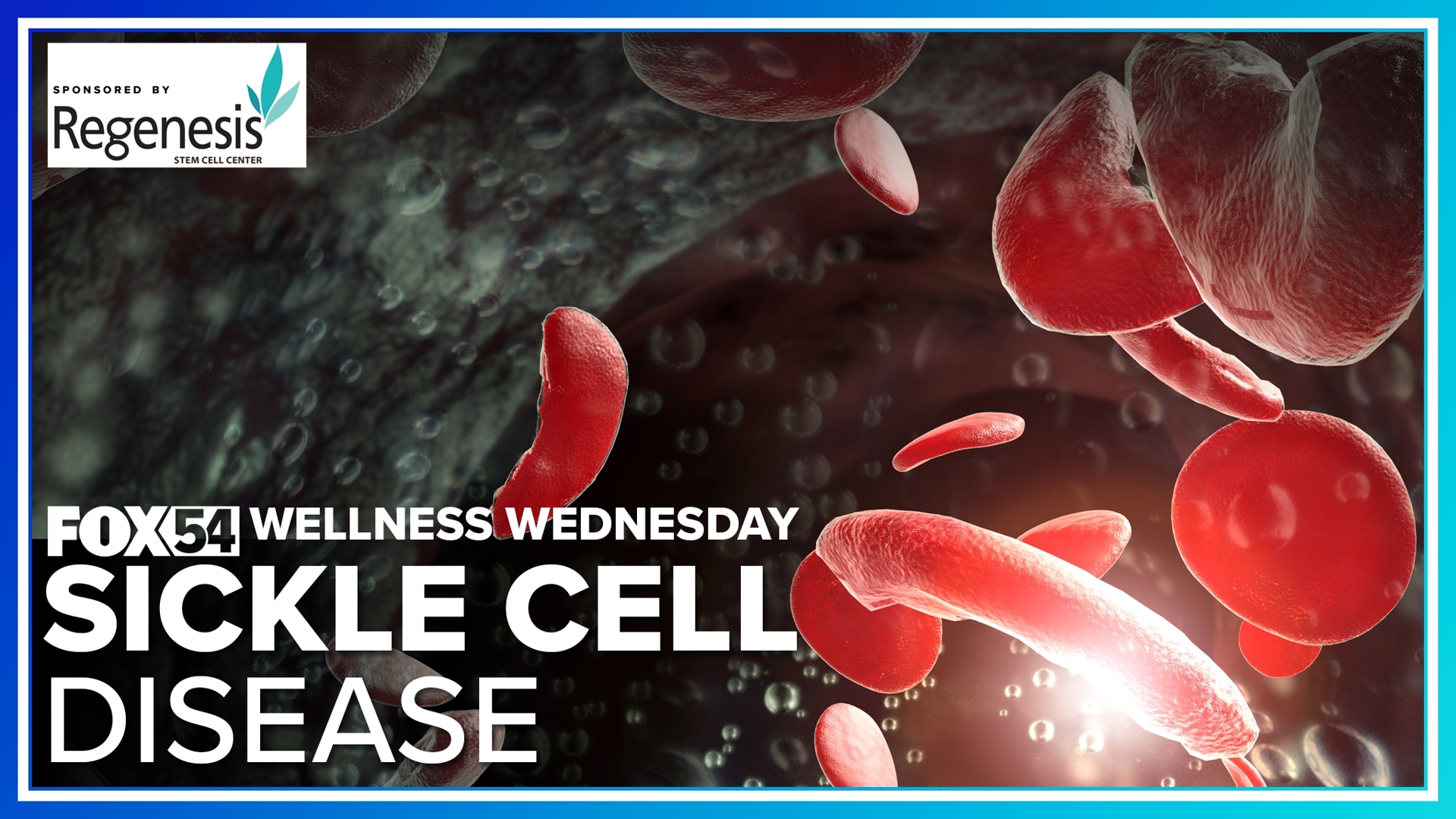HUNTSVILLE, Ala. — This Wellness Wednesday, we focus on what's called 'sickle cell disease'. The disease is a bit more common than you think. The CDC reports about 100,000 people in the U.S. have it, and more than ninety percent are black. FOX54 spoke with a local doctor who breaks it all down.
Dr. Kathy Cornelius with Central North Alabama Health Services explained that red blood cells are circular, flexible, and have the shape of a disk. "So sickle cell disease is a group of inherited blood disorders that affect the shape and function of red blood cells that allows it to be able to move through your blood vessels easily and transport oxygen. When a person has sickle cell, there's something that's wrong inside of the cell that causes it to then bend into the form of a sickle or a crescent-shaped moon."
Cornelius says the sickle cell becomes rigid and sticky, and therefore it's unable to carry oxygen efficiently. "As well as to move easily to your blood vessels, resulting in an inability to get enough oxygen to where it needs to go. There is no cure. And it's unfortunately a lifelong disease with significant health impacts."
A sickle cell only lasts about 10 to 20 days, which means a large majority of the blood cells are destroyed. "So you're anemic all the time. So you're usually fatigued and tired, you have delayed growth. You tend to have chest pain, something called acute chest pain. If it gets severe enough, individuals can get strokes. You have swelling in the hands and the feet as well, having chronic inflammation."
That's not the only thing to note. "If you have a person that has a trait and another person has a trait, they have a one in four chance of the baby having sickle cell disease." Avoiding unhealthy habits is also another key component. "Smoking and drinking, that stuff is hard on the body already when it's healthy, imagine if you have sickle cell. Sickle cell is becoming more and more commonplace. I think people are not aware of the gravity of having the disease and the ramifications it can cause, not only in the individual, but in the family that affects everyone."

